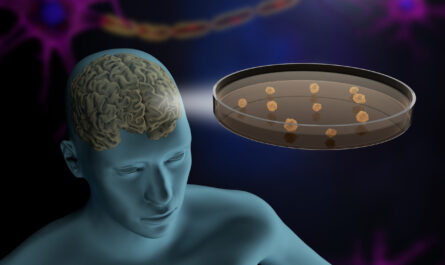A new blood test has been developed by researchers at the University of Cambridge that can improve the diagnosis of bipolar disorder (BD), a condition often misdiagnosed as major depressive disorder. The test, when used in conjunction with existing diagnostic tools, can ensure that individuals with BD receive the correct treatment and help identify potential drug targets for the condition.
BD is frequently misdiagnosed as major depressive disorder because patients typically seek medical assistance during depressive periods rather than manic episodes. Accurate diagnosis is crucial because the two conditions require different pharmacological treatments.
To enhance the accuracy of BD diagnosis, the researchers created a finger-prick blood test to detect biomarkers associated with the condition. This test can complement existing diagnostic methods.
According to Jakub Tomasik, the lead author of the study, individuals with BD experience episodes of low mood and periods of high mood or mania. However, they often consult a doctor only during periods of low mood, leading to the misdiagnosis of BD as major depressive disorder.
During the study, the researchers used samples and data from the UK Delta study conducted between 2018 and 2020 to identify BD in patients previously diagnosed with major depressive disorder and currently experiencing depressive symptoms. Over 3,000 participants were recruited, and each completed a comprehensive online mental health assessment consisting of more than 600 questions. The assessment covered topics such as past or current depressive periods, generalized anxiety, manic symptoms, family history, and substance abuse.
Out of those who completed the assessment, approximately 1,000 were chosen to submit a dried blood sample obtained through a simple finger prick. The researchers then analyzed the samples for over 600 metabolites. After assessing the participants with the Composite International Diagnostic Interview, a validated diagnostic tool for mood disorders, 241 were included in the study.
From the analysis of the metabolites, the researchers identified 17 biomarkers for BD, with ceramide being the most pronounced one. Previous studies have linked ceramide to several psychiatric disorders, including BD. These identified biomarkers mainly correlated with lifetime manic symptoms and were confirmed in a separate group of patients who received a new clinical diagnosis of major depressive disorder or BD within the study’s one-year follow-up period.
The researchers found that while the blood test alone could diagnose up to 30% of patients with BD, combining it with the online psychiatric assessment significantly improved the diagnosis rate, especially for individuals with less obvious diagnoses.
Sabine Bahn, a co-author of the study, stated that the online assessment was more effective overall, but the biomarker test demonstrated good performance and speed. The combination of both approaches would be ideal since they complement each other.
Although the blood test is still in the proof-of-concept stage, the researchers believe it can benefit both patients and medical professionals. Tomasik explained that while psychiatric assessments are highly effective, a simple blood test to diagnose BD could ensure that patients receive appropriate treatment from the start, reducing the burden on medical professionals. Some patients preferred the biomarker test as it provided them with an objective result they could see. Mental illness has a biological basis, and it is crucial for patients to understand that it is an illness affecting the body, just like any other.
In addition to its diagnostic potential, the biomarker blood test could be used to identify drug targets for mood disorders, potentially leading to improved treatments, according to Bahn. The researchers are excited about the possibilities arising from this area of research.
Note:
- Source: Coherent Market Insights, Public sources, Desk research
- We have leveraged AI tools to mine information and compile it




